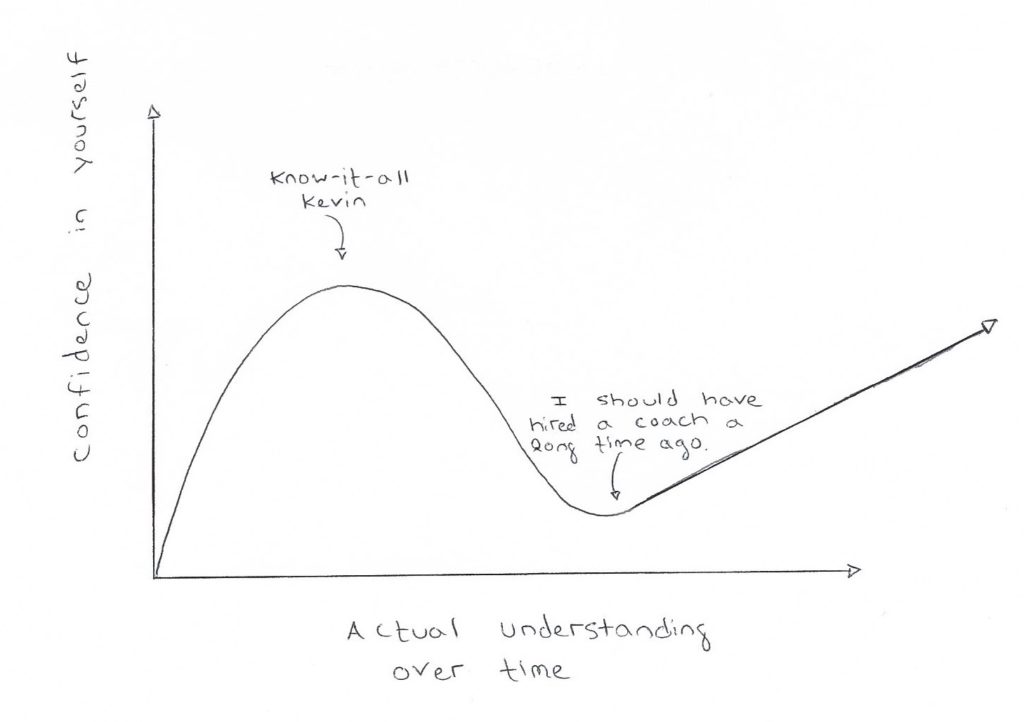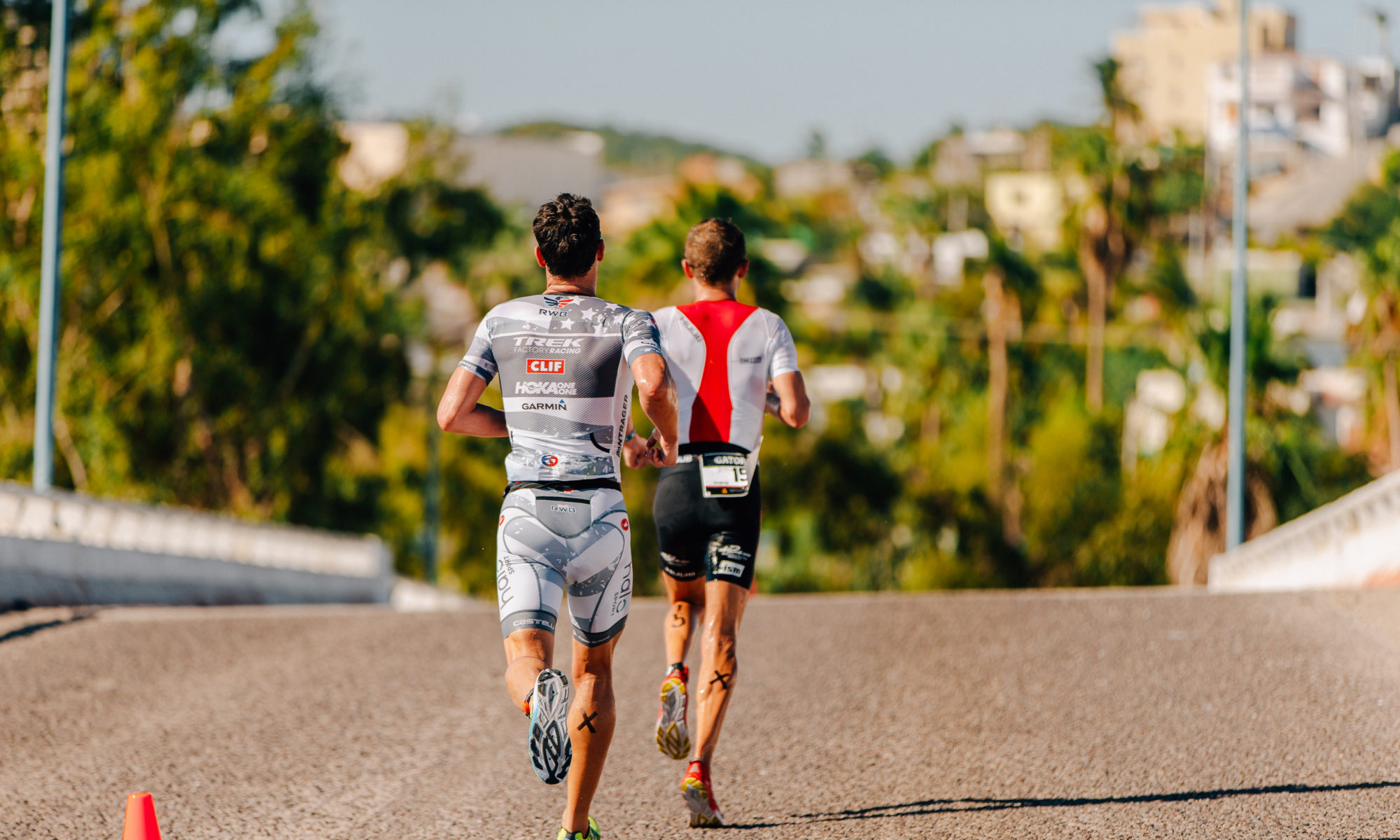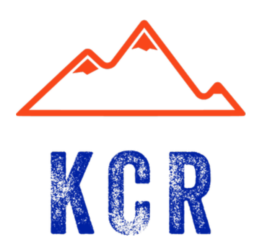This is a crosspost of an article I wrote for JET Coaching, a coaching group out of Melbourne, Australia. Enjoy!
As an 18 year veteran of pro triathlon racing, I often get approached at races by age group athletes asking all manner of questions. Taking a look at my bike or gear, it’s usually something like, “How do you like that bike?” Or, “What’s your experience with these shoes?” Every once in a while, though, I get a question as old as triathlon itself: “What piece of equipment can I buy that will make me faster immediately?” My inevitable response is always, “Do you have a coach?” Yes, a ZRAM Carbon SES Coated Electronic Bottom Bracket will make you faster by a finite amount, but a competent coach can give you the gift of continued improvements over days, weeks, months and years. Hiring a good coach has far higher potential return on investment than any single piece of triathlon equipment. “How,” you ask? Read on!
First, a good coach will almost always know best when it comes to how your training needs to progress. However, for reasons unknown, a lot of newer athletes think they already know everything they need to know. In my experience this applies more to male athletes than females, but I don’t want to generalize too much. I’ll give an example instead:
Cue 20 year old Kevin in his sophomore year at the University of Florida – he is “self-coached,” in that he does some group sessions with the UF Triathlon Team (the TriGators), but he often does whatever he feels like instead. This style of training led to a fair amount of success in collegiate triathlon as a freshman, finishing in the top 100 at the Collegiate National Championship. Kevin thinks he knows everything at this point. He’s training six to eight hours per week, eating pizza for dinner most nights, staying up until 1am to finish homework (or just look at new road bikes he wants to buy). He often decides mid-workout to change his easy run to a tempo run (and at least once had to take two weeks off to rehab some mild achilles tendonitis because of this). It certainly doesn’t look like he knows what he’s doing, but nonetheless that is what he thinks. That’s where my first coach showed me the light. Jennifer Hutchison, Florida’s regional talent development manager for USA Triathlon, contacted me to ask if I wanted a coach (for free, mind you). It took far too much time and effort to convince me, but once I acquiesced I started putting down very well structured 12 to 20 hour weeks of training, and staying in my zones when I was supposed to. My race results went parabolic and I eventually won the collegiate national championship in my senior year.
Does anything about “know-it-all” Kevin sound familiar to you? Then you might be a good candidate for one-to-one coaching. This version of Kevin was actually a perfect representation of something called the Dunning-Kruger Effect, which basically says that when a person is new to something or at a low to medium level of ability, that person can often falsely believe that he or she is an expert (see the graph above). But what if you are through the “false confidence” zone and into the zone of actual understanding? What else can a coach provide? Quite a bit, actually.

1) Accountability: the fact that someone is actively reviewing your training each day can mean the difference between 1st place and 100th place. It’s all too easy to put off a workout until the next day if nobody is actually holding you accountable. Or to swap this easier session for a harder session because the weather isn’t what you wanted it to be. The examples are endless. Accountability matters.
2) Objectivity: your coach will never have the same emotional attachment to your training or racing that you do. For example, if you love doing your local race every year, but your “A” race you previously decided on is one week later, then you should probably skip that local race so you can keep your eye on the true prize you’ve been training for. It sometimes takes a coach to remove the emotion from decisions like this.
3) General guidance: a coach’s duties also include being a sounding board for new ideas, or sometimes just to provide general support and guidance. I often coach athletes that are very far along the “actual understanding” portion of the above graph – sometimes these athletes know what sort of training I’m going to give them before I even post it. But even the most experienced athlete sometimes needs a nudge back in the correct direction, and that’s where I step in. I can provide this nudge as a coach, but as an actively competing athlete myself, I need someone else to do the nudging. Even the most experienced amongst us can stray from the correct path at times.
4) Racing strategy and insights are another key benefit of having a good coach. Everything from choosing the correct race for you (based on course characteristics, time of year, location, etc), to race-day strategy and in-race cues, your coach can once again remove the emotion and overthinking that we, as athletes, often default to. Even the best of us can revert back to a very primitive way of thinking when we are three hours deep into a 70.3, exhausted, dehydrated and possibly low on blood sugar. It could be something as simple as having your watch take an auto-lap every 10 minutes to remind you to eat and/or drink, or as complicated as how to plan your nutrition for a full distance race in terms of grams of carbohydrate per hour, or ml per hour of fluid intake per hour, etc. We as athletes will never be an expert in everything, so it’s always good to delegate tasks like this to a coach who knows more, or at least use him or her as a sounding board.
5) Lastly, I always say that one hour working in-person with one of my athletes is like 1,000 hours of distance coaching. In-person swim, bike, and run sessions from a knowledgeable coach are potentially game changing in terms of performance. Even virtual meetups on Zwift provide accountability and camaraderie amongst a training squad. We have to be honest with ourselves, though – distance coaching is the rule rather than the exception these days. I currently coach zero athletes in my home state of Colorado, so the best I can do is request a swim or run form video occasionally to do video form analysis. However, on the rare occasion I do a race in one of my athlete’s home towns, I always try to find the time to get together and do as much in-person work as we can. Training camps can also be incredibly high value – in my experience, having an athlete onsite for as few as a couple of days can accelerate that athlete into a year of personal best performances. Anything from major form overhauls to just being “inspired” to train harder or better are all benefits of a good training camp.
So there you have it – do you feel like you need to hire a coach now? If you already have a coach, what inspired you to hire him or her in the first place? I’ve touched on a few points here but the benefits of coaching are often personal to each athlete. If I’ve missed something let me know down in the comments. Hopefully I’ve inspired at least one “20 year old Kevin” type athlete to put off the purchase of that Jiro Firecrown Aero Hydrophobic TT Helmet and instead hire a good coach. After all, it’s always better to take care of the first 98% of performance limiters before trying to tackle that last 2%.
Speaking of in-person coaching, and knowing that I’m writing this article for the lovely athletes of the JET Coaching group in Melbourne, Australia, I’ll see you all at my next race – Geelong 70.3 on March 26th.

